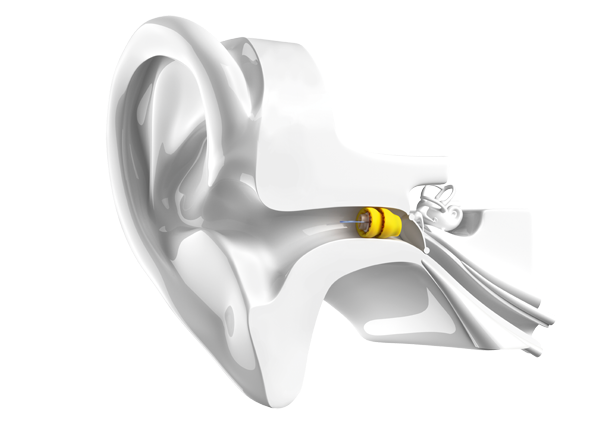Hearing Loss and Depression: Help Is Available
Hearing loss and depression are two unfortunate facts of life. While they can both feel isolating, in truth, these issues are extremely common.
An alarming 54% of Canadians between ages 40 and 79 suffer from hearing loss. As your hearing slips, so might your mental health. That being said, there is help available.
Hearing aids are certainly not the cure-all for depression, but they can contribute to your quality of life by letting you experience things that bring you joy through sound. The key is understanding, and that begins by considering the physiological and psychological impacts of hearing loss.
Connections Between Hearing Loss and Depression
Hearing loss and depression are connected in many ways, and one of the main ones is a sense of isolation. Research shows that making connections with friends and family is essential to psychological well-being, and we all know that hearing is pivotal to interactions.
Auditory issues and depression are invisible illnesses — something that makes them even more isolating. Studies show that conductive or sensorineural hearing loss can cause anxiety, exhaustion, insecurity, and a sense of despair.
From loss of intimacy to anger and extreme depression, hearing loss has intense effects. Since auditory issues are progressive, the best thing you can do is to take action and consult an audiologist.
Hearing Loss and Depression: Using Technology to Improve Quality of Life
Once upon a time, if you suffered from auditory decline, whether injury, illness, or age-related, there was no recourse. The slow descent where people lost their sense of sound accompanied feelings of isolation, fear, and anxiety.
Eventually, solutions evolved to provide analog assisted hearing devices, a miraculous feat, surely, but one not without flaws. The first issue was feedback. Next came issues with a bulky design. Then came Bluetooth.
Engineers continued forward, creating new devices that not only help you hear, but hear in an authentic way that can truly touch the mind, heart, and soul.
Hearing loss and depression can make reprieve feel out of reach — but help is available. All you have to do is reach out to your hearing health care professional to learn more. There are many ways hearing aids and assistive living devices can offer benefits that extend to mental health. These include:
1. Improving overall wellbeing
Auditory issues relate to more than the progressive loss of the sense of sound. They consider the entire aural system and use ever-advancing technology to restore hearing wellness.
Modern hearing aids can connect wirelessly, letting you feel the voices of grandkids even over a phone call. From preventing the frustration of feedback to addressing tinnitus, managing your hearing health can change your life experience.
Most health care plans accommodate hearing aids, making it affordable to return to your familiar soundscape. It all starts with a simple hearing test.
2. Reduce cognitive decline
Issues with mental capacity, including dementia, Alzheimer’s, and overall cognitive decline, relate directly to hearing loss. Any ability requires practice to retain agility, and hearing is no different. It actively uses a large portion of the brain by providing it with stimuli to process.
Hearing loss weakens this signal, and therefore the system as a whole. A hearing aid enhances that signal and reestablishes the auditory system.
Just like doing a jigsaw puzzle for visual perception, or a crossword for linguistic skills, hearing keeps your brain on its toes. More important, perhaps, than the hearing itself is the act of listening.
Conversation, whether with someone you love or a stranger in passing, connects you, not only through the act of hearing, but listening, interpreting, and contextualizing. Sound gives meaning to your surroundings, putting you at the centre of your experience.
3. Lowered risk of depression
Ageing is a natural process, but suffering from depression and hearing loss doesn’t have to go hand-in-hand with it. When you opt for a hearing aid, it’s making the active decision to help yourself. That, in itself, is a major step out of the darkness of depression.
Actually getting your hearing aid takes it even further. Those rechargeable hearing aids become a daily ritual where you reinforce your personal value and determination to battle depression.
Maybe you want to listen to a classic rock band. Perhaps it’s hearing your spouse’s voice with authentic clarity. It could be the desire to listen to the patter of rain or waves on the shore. Or maybe it’s simply knowing that you are in tune with your surroundings, whatever they might be. Sound might not cure depression, but getting help for your hearing issues can make a significant difference.
4. Connecting your senses
Smiles are an essential part of well-being—not only those that are seen, but those that are also felt and heard. Hearing loss and depression are connected because all your senses work as a team to help you live and experience that life as fully as possible.
Hearing aids have become much more advanced — not surprising since they date back to 1898. Now, those with hearing loss and depression can rely on a hearing aid to perceive that smile. And who knows? Maybe you might just smile back.
One Step Forward Is Another Step Closer
Hearing loss and depression deserve care — we are here to support your wellbeing and help you return to a positive place. Even when you take it one step at a time, it still brings you one step closer.
Our team of professionals are ready to spring into action, so start your journey by calling us today at 1-888-811-9799 or Book an appointment online to learn more so you can thrive this season.
Works Cited
6 ways hearing aids can improve your mental health. (2021, September 29). Hearing Aid Service – hearingsolutions.ca. https://www.hearingsolutions.ca/6-ways-hearing-aids-can-improve-your-mental-health/
Granick, Kleban, & Weiss, 1976; Gussekloo, de Craen, Oduber, van Boxtel, & Westendorp, 2005; Lin et al., 2011a; Lin et al., 2011b; McCoy et al., 2005; Valentijn et al., 2005









